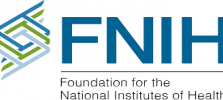Development of Large Scale Production, Anti-HIV Microbicide in Soya Beans
HIV microbicides are not currently sold commercially, and many other HIV prevention techniques remain unavailable or unfeasible in developing countries where the disease is most prevalent. The technology transfer effort of developing large scale production methods of CV-N in soy beans helps to address this issue. The ability to produce CV-N in large quantities at low cost affords researchers the potential to develop effective HIV prevention methods worldwide.










